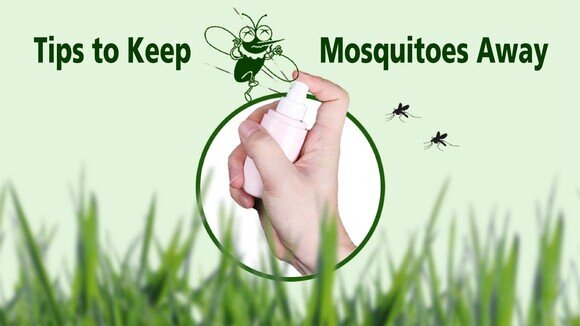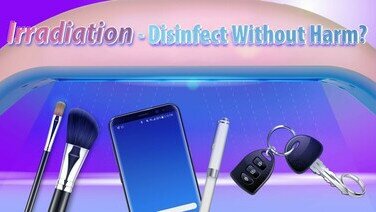Who are more prone to mosquito bites?
If you fall into one these categories, don’t be surprised that you would be the “main” target of mosquitoes among friends:
people who sweat a lot;
people with higher body temperature;
pregnant women; and
people who just finished exercising.
What do these people have in common? The answer: higher body temperature and carbon dioxide (CO2) concentration in exhaled breath! It is said that people with higher body temperature are more likely to attract mosquitoes. At the same time, mosquitos can use their "radars" to detect the level of CO2 in the surroundings. "Where there is CO2, there will be people"! Mosquitos infer that someone is nearby based on the increase in CO2 level and move towards the target. Therefore, when we exhale more CO2, we attract more mosquitoes.
It is also said that certain body odor can attract mosquitoes, especially lactic acid or uric acid excreted by the body. Genetics, eating habits, place of residence, and surrounding environment all affect body odor. There are all kind of “hypothesis” and more research is needed.
5 common mosquito repellent ingredients - how to make a smart choice?
For people who are “magnets” of mosquitos, mosquito repellents are essential to have. Listed below are the 5 most common ingredients used in mosquito repellents. Let’s learn about their differences and characteristics.
DEET (N,N-diethyl-3-methylbenzamide or diethyltoluamide): It has been widely used for many years, but its safety has been debatable. When applying products with a high concentration of DEET on children, it might lead to skin rashes, blisters, skin and mucous membrane irritation. The Department of Health, Centre for Health Protection of Hong Kong (CHP) has also advised against the use of DEET-containing insect repellents on infants under 6 months of age.
At the same time, DEET can dissolve plastic materials and certain synthetic fibers! Touching items containing plastic components such as cameras, mobile phones, handbags, plastic glasses frames or clothing with hands covered with DEET may cause damages to these items.
Picaridin or icaridin: Commonly found in anti-mosquito products in Europe and Australia. It is almost colorless and odorless, and is non-sticky and less irritating to the skin than DEET, and will not damage plastics and clothing made of synthetic fibers. However, it may still cause irritation to the eyes, so Health Canada has advised against the use of repellents containing such ingredients on infants under 6 months of age.
Ethyl butylacetylaminoproprionate (also known as IR3535): It is also colorless and almost odorless. But it may dissolve plastic materials or certain synthetic fibers. Its mosquito repellent effect is lower than that of DEET and may cause irritation to the eyes. The U.S. relevant bodies have advised against the use of mosquito repellent products containing IR3535 on infants under 2 months of age.
P-menthane-3,8-diol (PMD): Usually extracted from lemon eucalyptus or oil of lemon eucalyptus (OLE). The U.S. Centers for Disease Control and Prevention (CDC) has recommended only using refined OLE products because the mosquito-repellent effect of unrefined lemon eucalyptus essential oil is questionable. At the same time, PMD may cause irritation to the eyes, so PMD products are not recommended for children under the age of 3, and avoid contact with eyes.
Methyl nonyl ketone (or 2-undecanone, also known as IBI-246): A relatively new mosquito repellent ingredient which is a natural substance extracted from wild-grown tomatoes. Some products may label the ingredient as wild tomato extract. Methyl nonyl ketone is almost non-toxic and can be used in cosmetics and as cat / dog repellent.
Are natural ingredients absolutely safe?
If you want to stay away from chemical substances and switch to natural mosquito repellent products, you should still be cautious as these “natural” ingredients are not without risks.
Citronella oil: It is a natural mosquito repellent extracted from citronella grass. Its main ingredients are citronellol, citronellal and geraniol. It is classified as “Generally Recognized as Safe (GRAS)” in the U.S. and does not require to be registered with the United States Environmental Protection Agency (US EPA).
However, citronella oil may cause mild irritation to the skin, eyes and throat and cause coughing. Prolonged or frequent contact may cause skin allergy. Moreover, its strong fragrance may not be acceptable to certain individuals. The Canadian Government considers citronella oil not suitable for infants and young children.
Other mixtures of natural plant-based ingredients: lemon eucalyptus oil, lemongrass oil, cedar oil, and soybean oil are some of the common ingredients. The US EPA considers these ingredients as “minimum risk pesticide” and as such registration is not required.
However, low risk is not the same as being absolutely safe. Using these ingredients may still cause skin irritation. For example, citronellol contained in lemon eucalyptus oil, geraniol and limonene contained in lemongrass oil are all allergenic substances. During day time, certain plant-based ingredients may also cause allergies when exposed to ultraviolet rays.
Mosquito repellent and sunscreen – which one to put on first?
Some people may want to prevent mosquito bites as well as sunburn, and as such apply both mosquito repellent and sunscreen at the same time. But the U.S. Centers for Disease Control and Prevention does not recommend using sunscreen and mosquito repellent products concurrently. Consumers should apply a sunscreen product first, and wait for about 15 to 30 minutes for it to dry and be completely absorbed by the skin before putting on any mosquito repellent product.
In the article “69 Natural/Chemical-Based Mosquito Repellent Products Market Survey. Pay Attention to Ingredient Concentration and Allergens” CHOICE Magazine, Issue 524 (Chinese version only), the Consumer Council has compiled information on the ingredients and usage patterns of 69 common mosquito repellent products on the market, so that consumers can compare and choose the right mosquito repellent product.






![[Handwashing Cold Knowledge] Debunking 4 common handwashing myths](/f/guide_detail/409326/376c212/43_4%E5%80%8B%E6%B4%97%E6%89%8B%E5%B8%B8%E8%A6%8B%E8%BF%B7%E6%80%9D_Eng.jpg)





